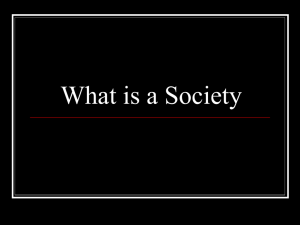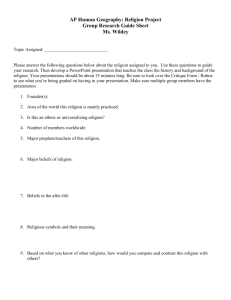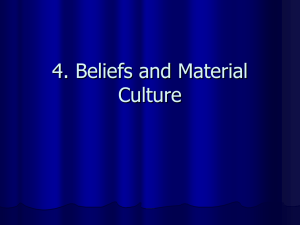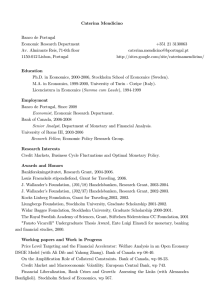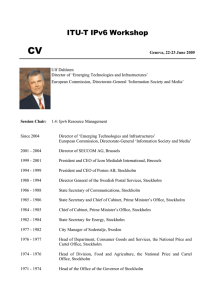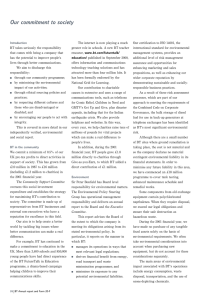How Does Communication A¤ect Beliefs?
advertisement
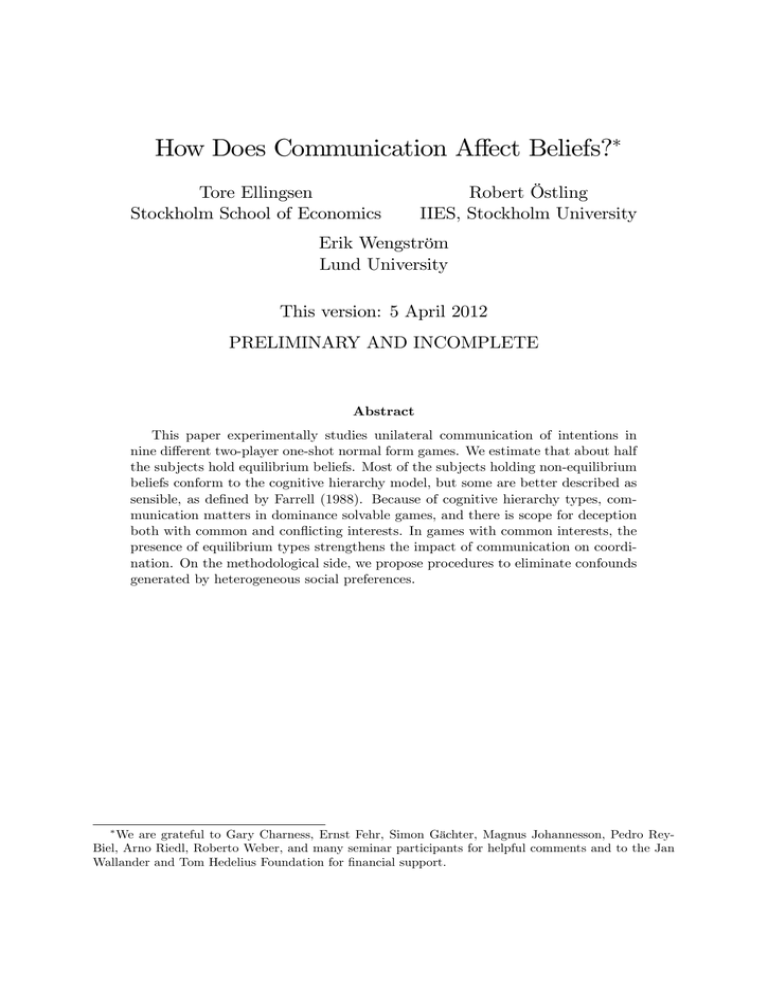
How Does Communication A¤ect Beliefs? Tore Ellingsen Stockholm School of Economics Robert Östling IIES, Stockholm University Erik Wengström Lund University This version: 5 April 2012 PRELIMINARY AND INCOMPLETE Abstract This paper experimentally studies unilateral communication of intentions in nine di¤erent two-player one-shot normal form games. We estimate that about half the subjects hold equilibrium beliefs. Most of the subjects holding non-equilibrium beliefs conform to the cognitive hierarchy model, but some are better described as sensible, as de…ned by Farrell (1988). Because of cognitive hierarchy types, communication matters in dominance solvable games, and there is scope for deception both with common and con‡icting interests. In games with common interests, the presence of equilibrium types strengthens the impact of communication on coordination. On the methodological side, we propose procedures to eliminate confounds generated by heterogeneous social preferences. We are grateful to Gary Charness, Ernst Fehr, Simon Gächter, Magnus Johannesson, Pedro ReyBiel, Arno Riedl, Roberto Weber, and many seminar participants for helpful comments and to the Jan Wallander and Tom Hedelius Foundation for …nancial support.



